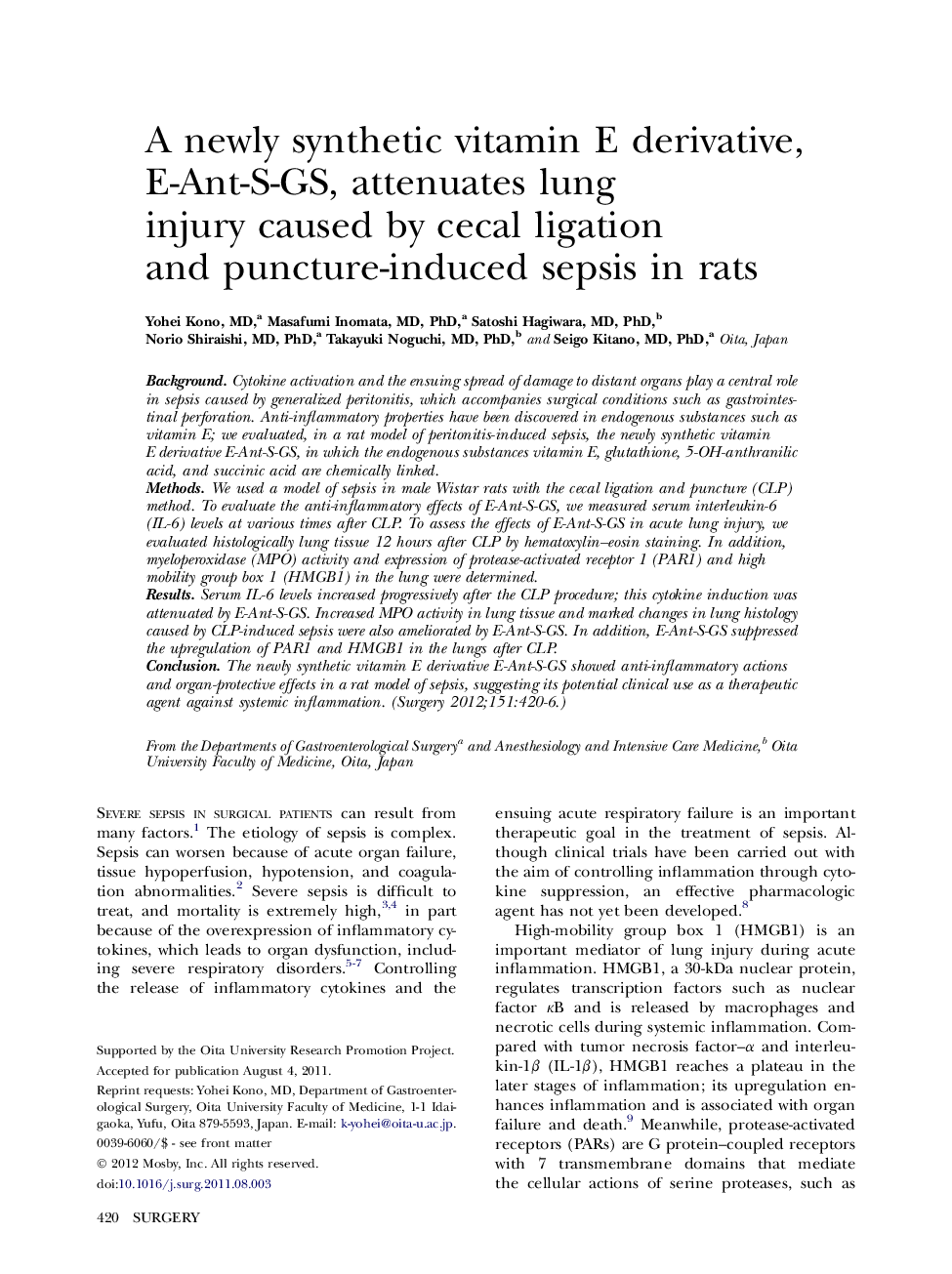| Article ID | Journal | Published Year | Pages | File Type |
|---|---|---|---|---|
| 4307379 | Surgery | 2012 | 7 Pages |
BackgroundCytokine activation and the ensuing spread of damage to distant organs play a central role in sepsis caused by generalized peritonitis, which accompanies surgical conditions such as gastrointestinal perforation. Anti-inflammatory properties have been discovered in endogenous substances such as vitamin E; we evaluated, in a rat model of peritonitis-induced sepsis, the newly synthetic vitamin E derivative E-Ant-S-GS, in which the endogenous substances vitamin E, glutathione, 5-OH-anthranilic acid, and succinic acid are chemically linked.MethodsWe used a model of sepsis in male Wistar rats with the cecal ligation and puncture (CLP) method. To evaluate the anti-inflammatory effects of E-Ant-S-GS, we measured serum interleukin-6 (IL-6) levels at various times after CLP. To assess the effects of E-Ant-S-GS in acute lung injury, we evaluated histologically lung tissue 12 hours after CLP by hematoxylin–eosin staining. In addition, myeloperoxidase (MPO) activity and expression of protease-activated receptor 1 (PAR1) and high mobility group box 1 (HMGB1) in the lung were determined.ResultsSerum IL-6 levels increased progressively after the CLP procedure; this cytokine induction was attenuated by E-Ant-S-GS. Increased MPO activity in lung tissue and marked changes in lung histology caused by CLP-induced sepsis were also ameliorated by E-Ant-S-GS. In addition, E-Ant-S-GS suppressed the upregulation of PAR1 and HMGB1 in the lungs after CLP.ConclusionThe newly synthetic vitamin E derivative E-Ant-S-GS showed anti-inflammatory actions and organ-protective effects in a rat model of sepsis, suggesting its potential clinical use as a therapeutic agent against systemic inflammation.
